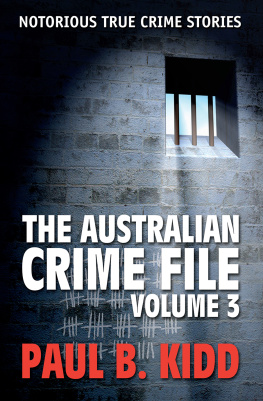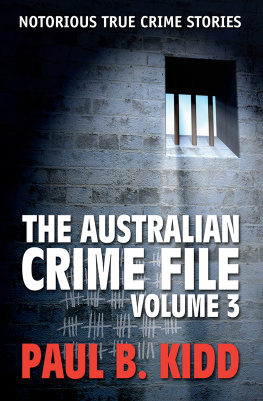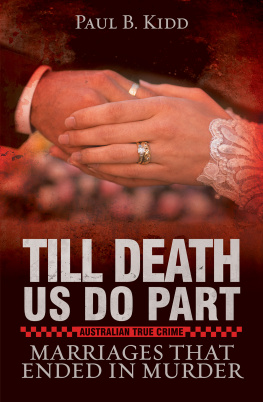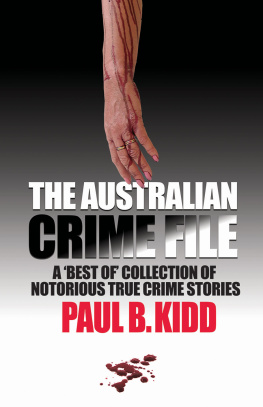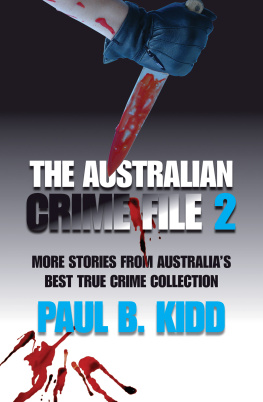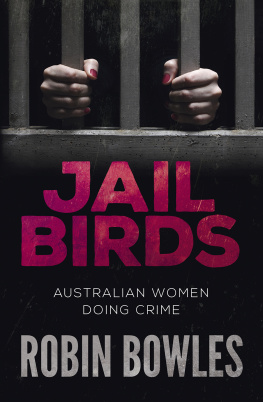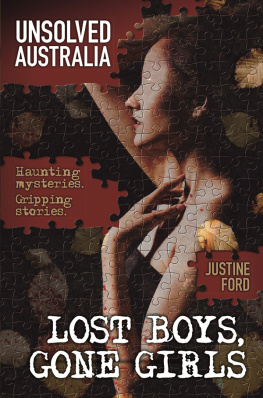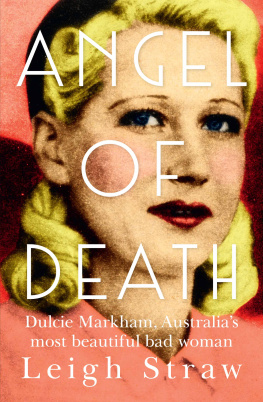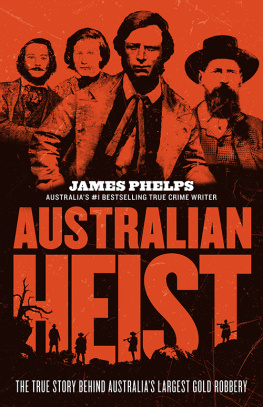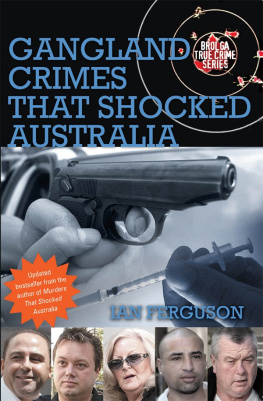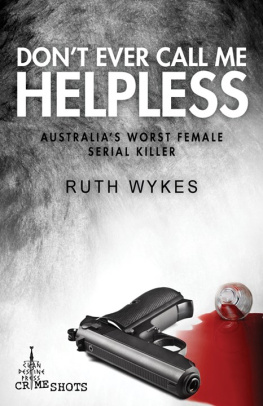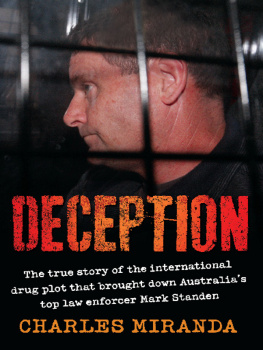The Australian Crime File 3
More Stories from Australias Best True Crime Collection
Paul B. Kidd
For Susie. Thanks for the help and advice. Its a long way from Mary Poppins.
Introduction
When I compiled the first Australian Crime File way back in 2005, I thought that perhaps there would be a Crime File 2, but at the time I never dreamed we would do a third. However, the first two have been so successful that another book is not really so surprising. Lets face it, crime stops for no man! And given that the books are based on the Crime File segments that I write and present with George Moore on our radio program each weekend on radio 2UE in Sydney, you could say that I am compiling a new chapter every week as I go.
When Im compiling these stories for the radio, I include the maximum amount of information in the minimum amount of space. Each crime file on the radio takes about 12 minutes to read out to the listeners and in that short time I must tell them every bit of information about the case. I pack details into the stories times, days, dates, years, motives, modus operandi, capture/non-capture, and sentences of the offenders. You are getting the best of everything in these informative chapters.
I have also endeavoured not to be opinionated and tried to be as non-judgemental as possible and just report the facts. But in some cases I simply cant help myself. My intense dislike for the serial and child killers, the pack rapists and heartless conmen is always simmering beneath the surface and on occasion it shows in the writing. You must remember also that I have written this for a huge radio audience which comprises people of all ages. There really are stories for everyone in this collection.
After spending a lifetime writing and broadcasting so many stories about every major crime, as well as most of the not-so-major crimes, in Australias history, I am proud so say that now I have now achieved the status of Crime Historian and that now appears as my by-line on my regular appearances on Today , Sunrise and 60 Minutes shown across Australia and in print media articles.
And I am very pleased to bring you the latest collection of Crime Files from our radio program. There is crime for everyone. Not just murder and rape but also lots of crimes about the ordinary and very respected members of our community, the least likely people that you would imagine would fall foul of the law and then have to face the judgement of their peers.
On behalf of George and myself Id like to thank all the listeners for making our show the number one weekend show in Sydney.
Paul B. Kidd, Sydney, 2012
Where is Jodie Larcombe?
Finding someone guilty of murder without a body is very difficultbut it does happen. Take the conviction of Lindy Chamberlain for the 1980 abduction and murder of her baby daughter, Azaria, at Uluru. Lindy Chamberlain was eventually exonerated, released and pardoned after years in jail when, by fluke, her baby Azarias matinee jacket was found near dingo lairs in 1986. Until then it was believed that the missing baby wasnt wearing any such jacket and that her mother had been lying, saying that her child had been taken from their tent by a dingo.
But there was no fluke in the case of Bruce Burrell for the abduction murders of Mrs Kerry Whelan and Dorothy Davis, whose bodies were never found. Burrell was caught through diligent police work from a team of detectives who knew he was as guilty as sin and would never give up until he was caught.
Another person conviced of murder without a body is Bradley Murdoch, for the outback murder of Peter Falconio, whose body has never been found. Murdoch made the mistake of leaving his blood DNA at the murder scene, on his second intended victim, and in her car.
You can read more about both the Bruce Burrell and Peter Falconio stories later in this book.
The following story is a lesser-known case of a murder without a body, which also resulted in a conviction due to relentless police diligence and detective work.
On or around 22 December 1987, the day she was released from Pentridge Prison, 21-year-old prostitute and heroin addict Jodie Maree Larcombe went missing. Three months later, in March 1988, in an unrelated incident, police were called to an isolated property in Pooncarie in the south-west of New South Wales to investigate the sexual assault and abduction of a woman named Sophie Carni, who had escaped her assailant and informed a neighbouring farmer of her ordeal.
There, local police arrested 51-year-old Daryl Francis Suckling, a property caretaker, and charged him with sexual assault and false imprisonment. Police checked Suckling out to find that he had been in and out of jail all of his life, with 138 convictions for a huge variety of offences including burglary, stealing cars and fraud dating back to when he was 11 years old. Suckling had twice escaped from jail and in 1978, at the age of 42, the skinny, inoffensive-looking little man had been convicted of carnal knowledge with a girl aged between 10 and 16. In 1984, he had miraculously managed to get very serious charges of abduction and rape dropped.
Sophie Carni told police that her assailant had abducted her at knifepoint in Melbourne, taken her to the property in New South Wales, drugged and raped her and forced her to pose for explicit photos. In her statement she said that her assailant had told her that he had killed another woman and her body was buried nearby. But he didnt say exactly where. Police conducted numerous thorough searches of the farm and surrounding areas but no body was ever found.
But while they found no human remains in their search, police did find jewellery, clothing and a set of dentures that belonged to a Jodie Larcombe, who had gone missing three months earlier. But it was the discovery of explicit photos of Jodie Larcombe, who appeared to be drugged or drunk and whose body appeared to be battered and bruised, that lead police to believe that she was the woman Suckling had boasted to Sophie Carni of killing and burying.
On 3 April 1989, police charged Daryl Suckling with the murder of Jodie Larcombe, along with the charges relating to Sophie Carni. On 3 June 1989, Sophie Carni died of a drug overdose, making her evidence at Sucklings trial inadmissible, and the judge ordered that Suckling be acquitted. But Suckling still had the charges of abducting and murdering Jodie Larcombe to answer to and his trial date was set down for 25 February 1991.
Soon after, police prosecutors and Jodie Larcombes family were shocked to receive a letter from the NSW Director of Public Prosecutions, Reg Blanch, informing them that the trial of Daryl Suckling on the charge of murdering Jodie Larcombe would not go ahead. The letter from Mr Blanch said in part:
I advise you that after careful consideration of this matter, I have directed that there be no further prosecution. I have received advice from two Queens Counsel that the evidence available at this time is such that if the evidence which is admissible were presented to a jury a verdict of acquittal would be inevitable.
I agree with the assessment. Such an acquittal would make it impossible to prosecute the matter again. By directing now that there be no further proceedings it is open to prosecute the matter again if any relevant evidence should come forward.
Mr Blanch and the NSW Department of Public Prosecutions came under heavy fire for the decision and in February 1992, Mr Blanch provided the following facts of the case:

